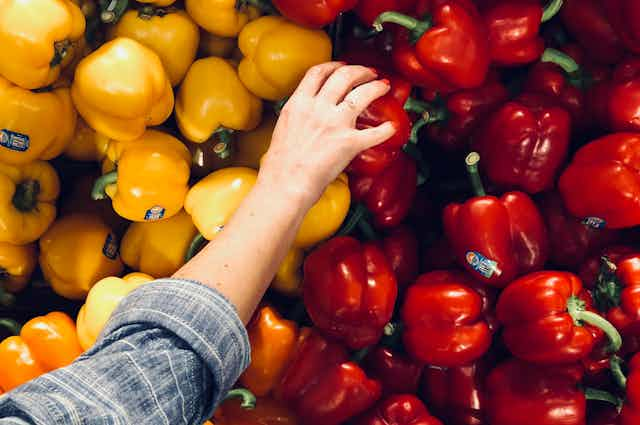A new survey shows Canadians care about food affordability and consider it an important issue this federal election. But little attention has been paid to the issue on the campaign trail or via political platforms.
Historically, food and agriculture rarely drive an election. But in an era in which interest in food policies is growing and faith in politics is declining, there is something stirring.
One of the main issues shaping this year’s Canadian federal election is affordability. Affordability has repeatedly been a top issue of concern for Canadians in several opinion polls and could be one of the defining issues that will determine the election’s outcome. But few polls have broken down what that concern actually means. The focus is usually on housing.
It’s therefore no surprise that all the parties have promises focused on housing affordability, which affects both baby boomers and millennials.
However, no leader have given much attention specifically to the issue of food security and the widespread anxieties Canadians have about being able to afford to eat.
Canadians anxious about housing and food
A recent Angus Reid Global survey, conducted with the support of Dalhousie University’s Agri-Food Analytics Lab, found that 60 per cent of Canadians believe food security and food price need more attention this election.
The concern is consistent across all demographic groups, which means that when people raise concerns about affordability, they’re not just worried about housing, they’re worried about whether they can eat well.
But 69 per cent don’t feel that food or agricultural issues are a prime election issue, even though 46 per cent of voters in Québec feel food issues are receiving the attention they deserve.
That’s likely why agrifood policies during an election are hardly debated. And that’s a missed opportunity. Health, the environment, the economy and immigration are all important issues and get a fair hearing during election campaigns. So too should agrifood.
Food costs are rising
Concerns about food affordability are not unfounded. Canada’s 2019 Food Price Report, released last December, shows that costs of vegetables are likely to rise four to six per cent. Overall food costs could increase as much as 3.5 per cent.
The report also shows that, on average, Canadian households are likely to spend at least $400 more on groceries next year. Food costs are rising faster than inflation, and accessing healthy food may be getting out of reach for many Canadians. Unsustainable debt levels and the skyrocketing costs of housing across the country aren’t helping.
When people were asked in the study which party was best-positioned to address food security issues, the most common answer, with 42 per cent, was “not sure.”
The highest proportion of people who answered this way were women in the Prairie provinces. Differences among age, educational and income groups were marginal.
Not knowing what party to turn to is really no surprise given none of the major parties have made food affordability a major focus of their campaigns or their platforms – for those that have even released them.
Instead, food security is hidden in policy discussions around farming and agricultural development, food waste, local food systems or a national food policy that combines these and other issues. When it is raised, it’s often done only in relation to Canada’s North, and fails to recognize food insecurity is experienced across the country and in all regions.
Political positions
Of the parties that have released platform documents, only the Greens and the NDP explicitly mention “food security.” For the Greens, the discussion is tied to many issues and not directly linked to affordability. For the NDP, there is just one mention of it linked to affordability but it is buried among other food issues. The New Democrats largely make reference to families in the North, though leader Jagmeet Singh has also mentioned access to local food while campaigning.
Neither the Liberals nor Conservatives have announced positions as they campaign, and efforts to dig into their positions online produce little information on how, or if, they plan to engage on food security or affordability of food.
It’s therefore no surprise so many Canadians don’t know what the different parties’ positions are on food affordability.
The Angus Reid Global poll suggests that Canadians believe the NDP to be better-positioned to address the issue of food security. As for the Green Party, food waste is the one issue they seem to own, based on the survey’s results.
Since there’s still more than three weeks to go until the Oct. 21 election, it’s not too late for parties to address the issues and directly link food security and food costs to the discussion of affordability.
Failing to do so will be at their peril. That’s because 55 per cent of Canadians, when forced to choose a single food-related issue, felt that food security and affordability for all Canadians should be our next government’s priority in agrifood for the next four years.
It’s time for leaders to recognize that when we talk about affordability, we cannot forget the need to eat.

